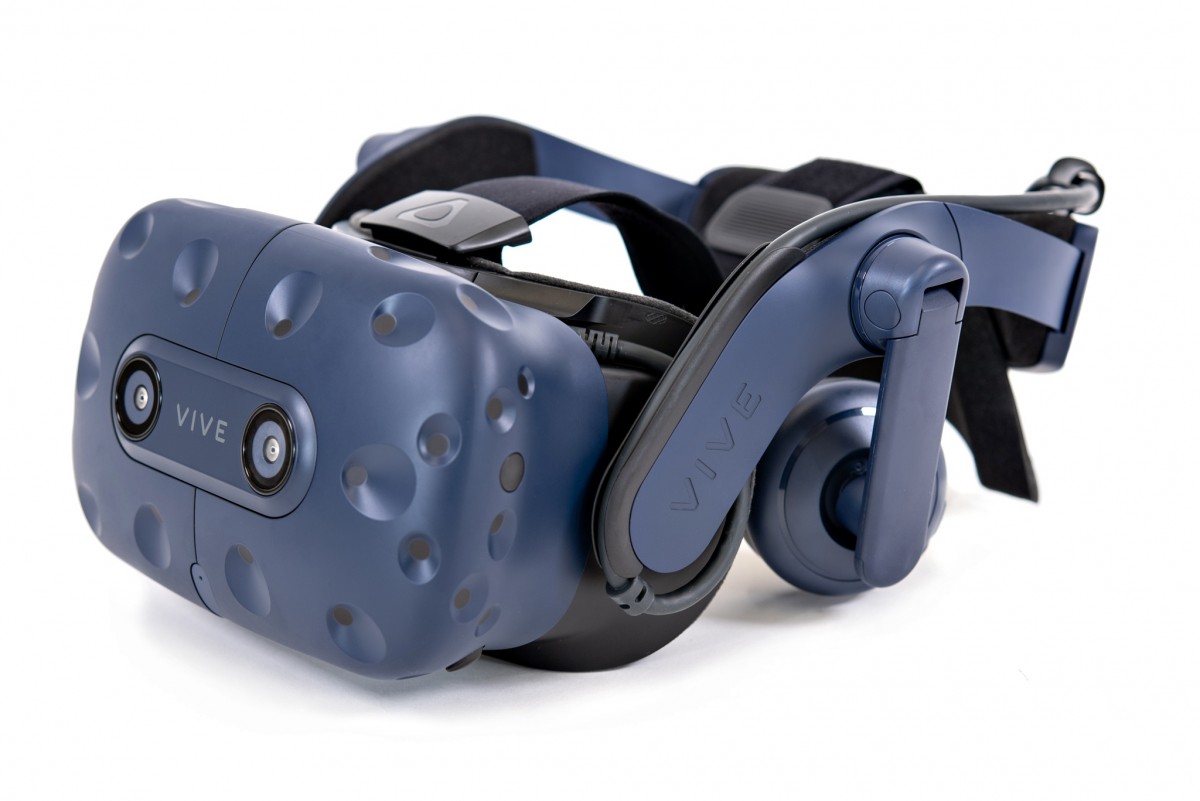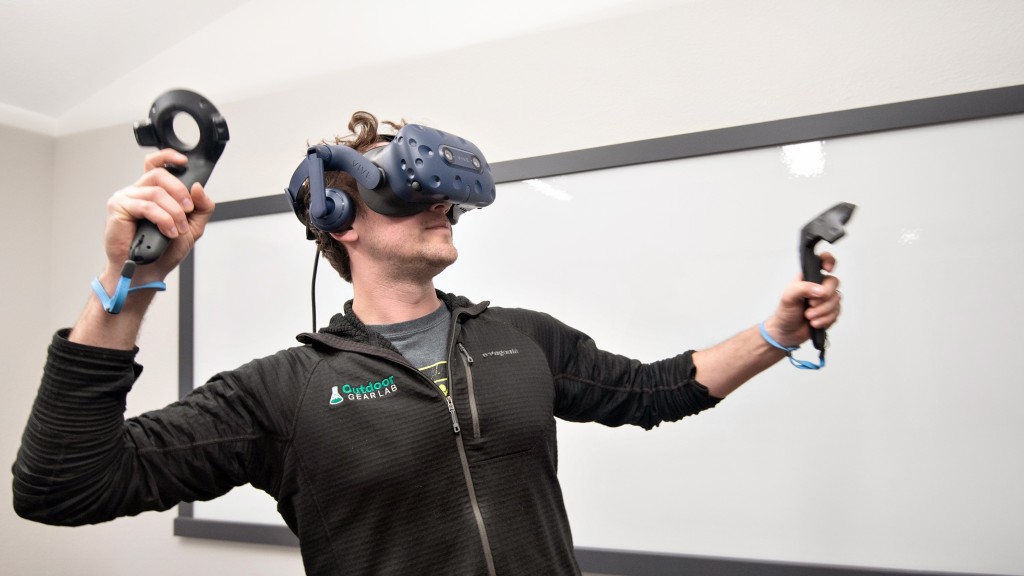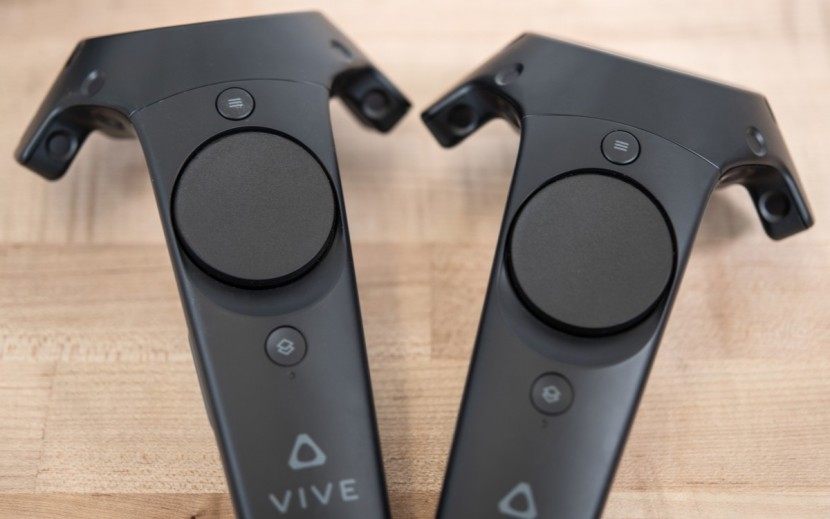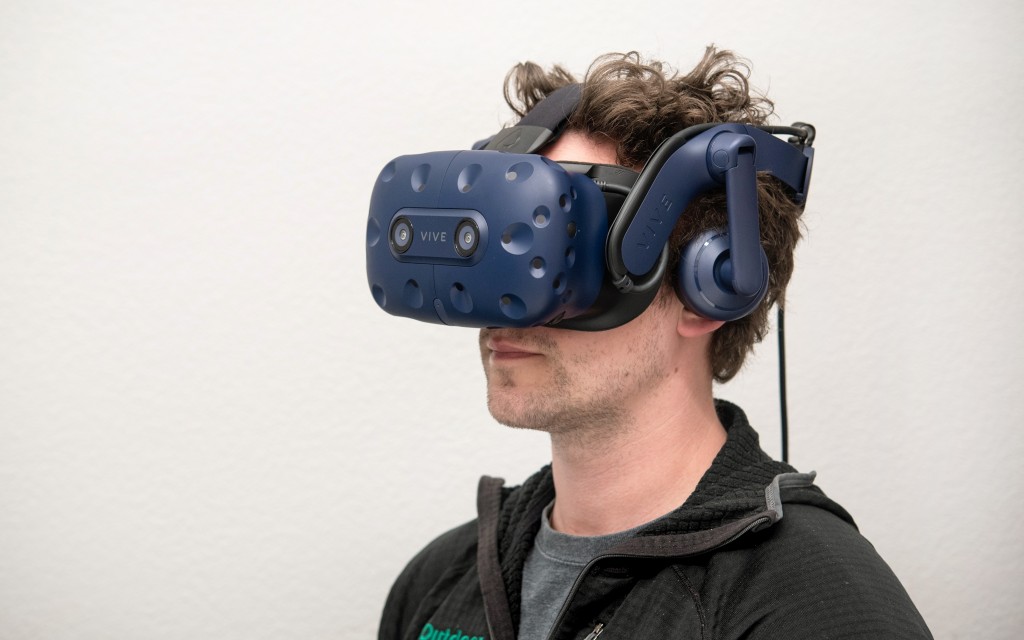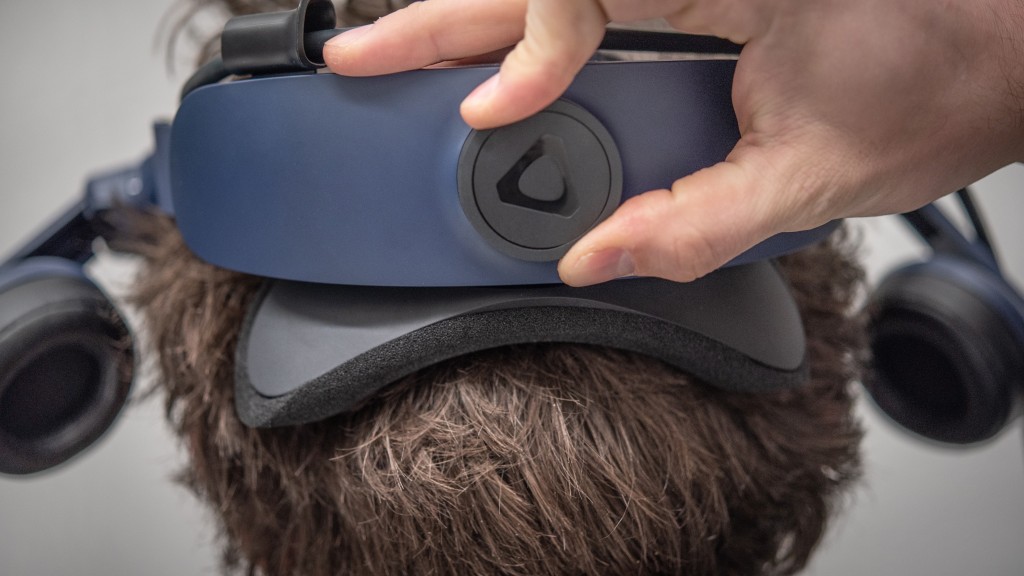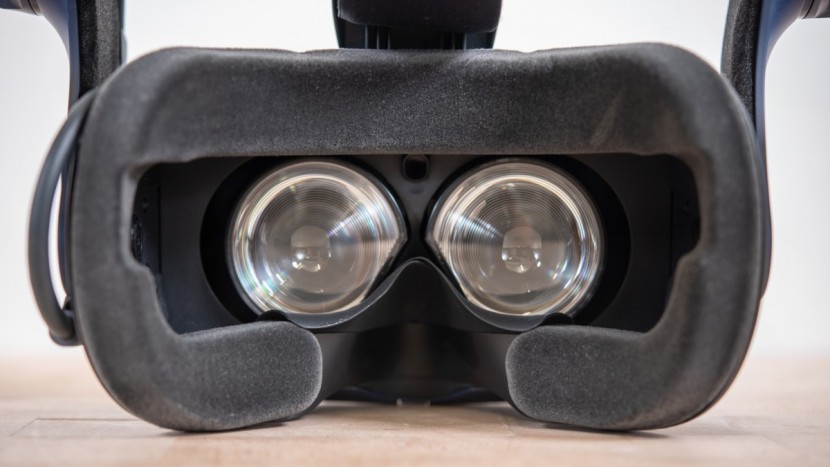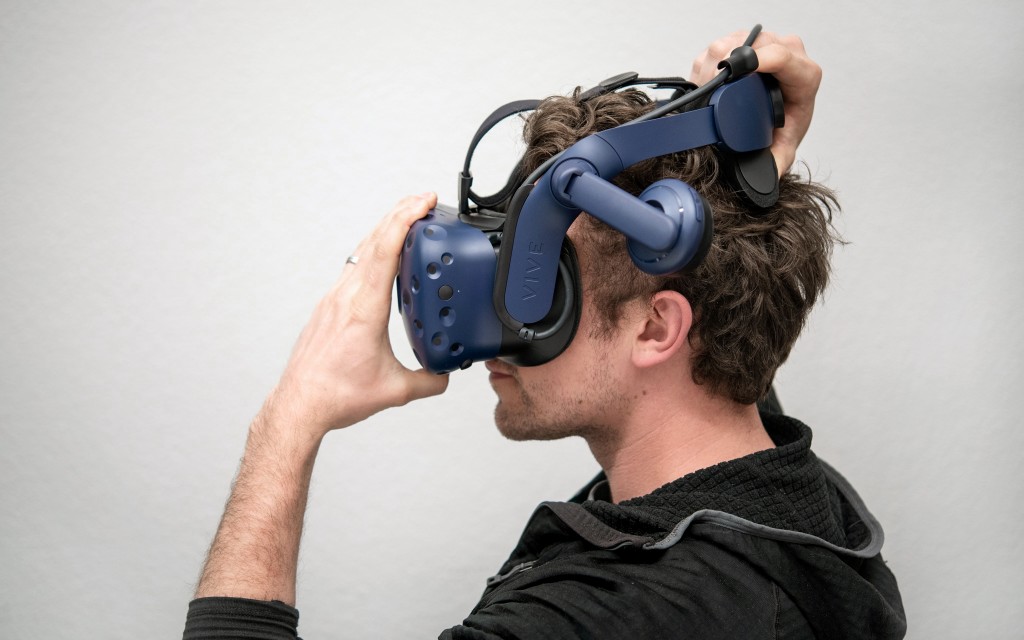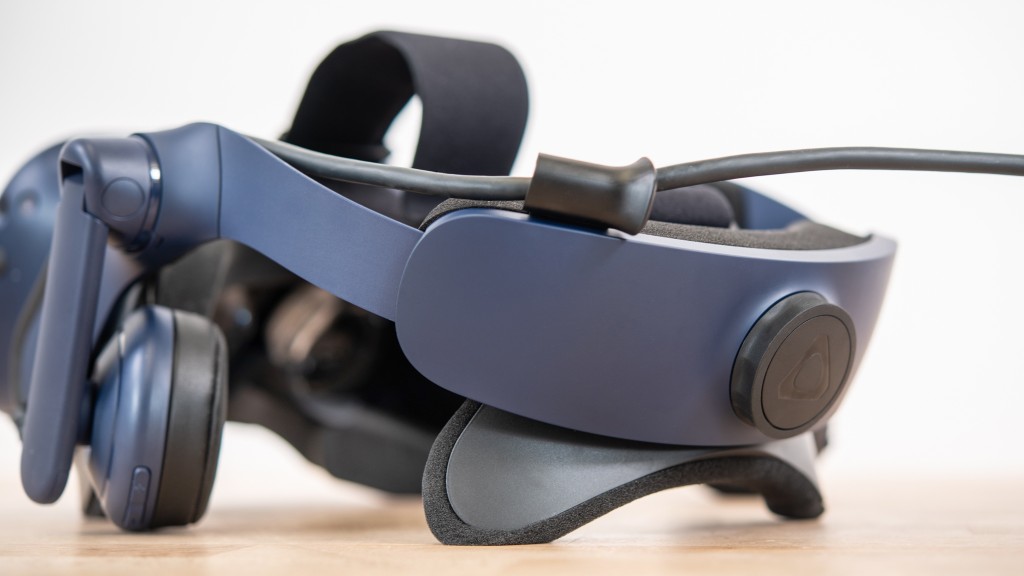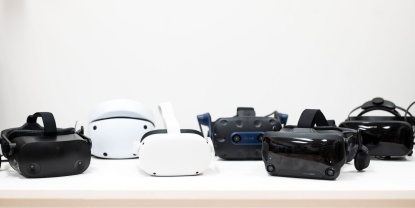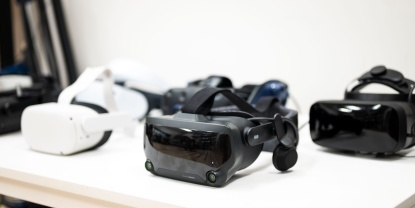HTC Vive Pro Review
Our Verdict
Our Analysis and Test Results
Performance Comparison
To rank and score these virtual reality headsets and pick out our winners, we bought all the most promising and compelling models, then pitted them against each other in a comprehensive set of side-by-side assessments. We split these assessments into five weighted rating metrics, with the Vive Pro's results outlined below.
Interactiveness
For our interactiveness metric, we looked at how the headset allows you to interact with your VR experience, how accurately it tracks your motion, and any limitations on your mobility, which together account for 35% of the Vive Pro's final score. It did exceptionally well in this series of evaluations, earning it a 9 out of 10.
The Vive Pro lets you interact with a pair of motion controllers. These track your hand position and movement, as well as having a handful of buttons. We found the position tracking to be extremely accurate and these are some of our all-time favorite controllers to use with VR experiences.
On top of that, you can also hook up an Xbox or PlayStation Controller to the PC if you don't want to rely on the motion tracking and want a more tactile interface. There aren't any buttons on the headset itself, but we definitely didn't feel that we needed them.
The external sensors have the largest coverage area of the entire group, tying with the original Vive, as the sensors are identical. We could move throughout the entirety of our small office testing room, similar in size to a standard bedroom.
The motion tracking for which way you are looking and your movement throughout the room are both excellent, making it and the original Vive our favorites to use.
Visual Immersiveness
Next, we compared and scored how visually immersive of an environment the Vive Pro created. We looked at the amount of ambient light blocked by each headset, the viewing quality, and the image resolution, as well as the field of view. The Vive Pro earned another top-notch performance, earning another 9 out of 10.
This has a slightly higher resolution than the original Vive, boasting a combined resolution of 2880x1600, or 1440x1600 per eye. It also has one of the widest fields of view, measuring in at a whopping 110°.
This makes for exceptionally fantastic overall viewing quality. The Vive Pro also does a great job of blocking out ambient light, letting in little to none at all depending on your face shape and never coming close to letting enough in to be distracting.
Comfort
Following our interactiveness and visual immersiveness metrics, we moved on to evaluating and comparing how comfortable each headset is to wear. We awarded points on how comfortable it is to wear for long periods of time, if there is room for glasses, and if there is adequate ventilation to keep your face from getting super sweaty while in use. The HTC Vive Pro continued its stellar performance, earning an 8 out of 10 in this group of tests, which constitute 20% of the final score.
Most of our users found this headset to be very comfortable and were more than happy to wear it for longer gaming sessions. Its weight is very nicely balanced, so you don't feel like your head is tipping for all the time. It's got plenty of padding and none of our judges noted that it created any pressure points.
It also has more than enough room to wear with almost every style of glasses frames, though it does let in a bit more ambient light, it usually isn't enough to be distracting. However, we did notice that there can be some weird pressure points if you really tighten the straps down when wearing glasses on the side of your head.
The Vive Pro also has a decent amount of ventilation and your face doesn't get too sweaty after extended use. Some parts of the headset will heat up after long periods of play, but they do a better job of funneling the heat away from your head than on the original Vive.
User Friendliness
Our next metric encompasses how much of a hassle it is to get the Vive Pro ready each time you want to use it, as well as the effort required to get it set up with headphones. It once again earned top marks, meriting a 9 out of 10 in this metrics, which is responsible for 15% of the final score.
This headset has a built-in set of noise-canceling headphones, so there is no setup required. It also is one of the easiest to get ready once the initial installation is completed — you just need to put the headset on within view of the external sensors and you are ready to go. We also like that it's not very easy to accidentally hit buttons on the headset when taking it on or off. The only onboard controls adjust the volume and are well out of the way.
Ease of Setup
Unfortunately, the performance of the Vive Pro dropped in our final metric, earning it a 4 out of 10 when it comes to the initial installation process. This metric accounts for the remaining 10% of the Vive Pro's score and takes the difficulty of the hardware and software setup, as well as the amount of peripheral hardware required into account.
It takes a decent amount of effort and a bit of time to get all the hardware and software set up and installed, about an hour if everything goes smoothly — which it did not. There definitely were a few hiccoughs with getting the sensors and Steam VR ready, nothing majored, but we did have to adjust settings and retry a few steps before everything was talking happily with each other.
Additionally, the Vive Pro also lost some points by requiring a decent amount of additional hardware. You need a relatively powerful PC to run the Vive Pro, usually one with a dedicated GPU that ends up costing around $1000, significantly adding to the price of an already expensive product.
Value
The Vive Pro is a terrible value, as there are other products that only perform a tiny bit worse and cost hundreds of dollars less.
Conclusion
While the Vive Pro is one of the best you can get, its exceptionally high price makes us very reticent to recommend, as you can spend hundreds of dollars less and get almost the identical virtual reality experience.


